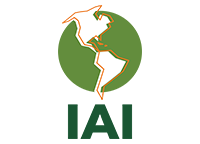Harnessing the diversity of small-scale actors is key to the future of aquatic food systems
| Publicado en | Nature Food v. 2:733–741 (2021) |
|---|---|
| Autores | Short, R.E., Gelcich, S., Little, D.C. et al. |
| Año de publicación | 2021 |
| DOI | https://doi.org/10.1038/s43016-021-00363-0 |
| Afiliaciones | Rebecca E. Short 1,27 ✉, Stefan Gelcich 2,27, David C. Little 3,27, Fiorenza Micheli 4,5,27, Edward H. Allison 6, Xavier Basurto 7, Ben Belton6,8, Cecile Brugere9, Simon R. Bush 10, Ling Cao11, Beatrice Crona 1,12, Philippa J. Cohen 6,13, Omar Defeo14, Peter Edwards15, Caroline E. Ferguson16, Nicole Franz17, Christopher D. Golden 18, Benjamin S. Halpern 19,20, Lucie Hazen4, Christina Hicks 21, Derek Johnson 22, Alexander M. Kaminski 2, Sangeeta Mangubhai23, Rosamond L. Naylor 24, Melba Reantaso17, U. Rashid Sumaila 25, Shakuntala H. Thilsted6, Michelle Tigchelaar 4, Colette C. C. Wabnitz 4,25 and Wenbo Zhang 26 1Stockholm Resilience Centre, Stockholm University, Stockholm, Sweden. 2Instituto Milenio en Socio-ecologia Costera & Center of Applied Ecology and These authors contributed equally: Rebecca E. Short, Stefan Gelcich, David C. Little, Fiorenza Micheli. |
| Programa |
|
| Proyecto | SGPHW-017 |
| Keywords | |
 Short et al Suppl Mat_SGPHW-017.pdf Short et al Suppl Mat_SGPHW-017.pdf |
Abstract
Small-scale fisheries and aquaculture (SSFA) provide livelihoods for over 100 million people and sustenance for ~1 billion people, particularly in the Global South. Aquatic foods are distributed through diverse supply chains, with the potential to be highly adaptable to stresses and shocks, but face a growing range of threats and adaptive challenges. Contemporary governance assumes homogeneity in SSFA despite the diverse nature of this sector. Here we use SSFA actor profiles to capture the key dimensions and dynamism of SSFA diversity, reviewing contemporary threats and exploring opportunities for the SSFA sector. The heuristic framework can inform adaptive governance actions supporting the diversity and vital roles of SSFA in food systems, and in the health and livelihoods of nutritionally vulnerable people&mdashsupporting their viability through appropriate policies whilst fostering equitable and sustainable food systems.
